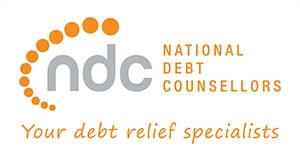Navigating Debt Management: Tips and Strategies for a Debt-Free Life
Understanding and managing debt is an important life skill. Most South Africans must apply debt management measures in their day-to-day lives. Millions of local consumers are dealing with debt. Good debt management is much needed to avoid the stress of uncontrolled debt, including being hounded by creditors, threats of furniture being repossessed, threats of home eviction and constantly being in arrears on repayments.
The simplest solution is not to make debt but very few people can pay cash for a car or a house. It would also take far too long for them to save the cash needed. Most people will have to lend the capital needed from a bank or financial institution.
If you buy a home that you can afford, you not only have a place to stay but also have an asset that will grow in value over time. If you can limit your debt to only your home loan, then you will be applying good debt management. On the other hand, a car is a depreciating asset as it will only lose value over time. Although they are a necessity for most car owners, cars are expensive to run and maintain. Where possible, avoid lending money to pay for a car.
Debt Management Means Being in Control of Your Finances
Debt management needs discipline, financial responsibility, and careful planning. To effectively manage your debt, you need to know what your real living costs are and how much income you have. This means that you must create a budget.
Write down your income and all the money you pay out over a week or month. Essential expenses, like housing, food, power, water, and transportation, must be paid first. List all your debt repayments, including credit cards, loans, and short-term accounts. If possible, pay more than the minimum payment. In addition, build an emergency fund by saving a small amount of your income each month to account for unexpected expenses. Savings can stop you from taking on more debt.
Practical Debt Management Tips
- Assess your budget to see which expenses you can cut back on. Perhaps you can eat out less, drink or smoke less or buy less expensive products. The money you save from cutting back on non-essential spending can go toward paying your debt off as quickly as possible. To make a larger dent in your debt repayments, pay extra on the debt with the highest interest rates.
- Look for ways to earn an extra income. Take on after-hours, part-time, or weekend work. Earmark the extra income for paying off your debt and pay it off faster.
- If you are struggling to keep up with your debt repayments, contact your creditors and negotiate lower interest rates on your loans or credit cards. This can reduce the total cost of your repayments and make it easier for you to manage.
- A simple type of debt management is using cash or debit cards instead of relying on credit cards. This helps you avoid accumulating more debt and encourages mindful spending.
- Before taking on any new debt, ask yourself if it is essential or if you can do without it. Make 100% sure you can afford the payments and only borrow what you genuinely need.
National Debt Counsellors – The Road to Living a Debt-free Life
Becoming debt-free takes discipline and dedication, so, stay motivated and focused. Keep your eyes on the reward, which is a debt-free, worry-free life. Remember, becoming debt-free takes time and perseverance. By applying good debt management strategies and making carefully considered financial choices, you can gradually work off your debts and enjoy financial freedom.
If you’re already over-indebted, then seek the support of a debt counsellor. A registered debt counsellor will give expert advice and guidance. and ensure that you get legal protection. They will help you navigate the debt review process. Don’t face over-indebtedness alone. National Debt Counsellors helps thousands of South Africans to regain financial freedom and become debt free. Contact us today for a free, no-obligation assessment of your financial situation.

